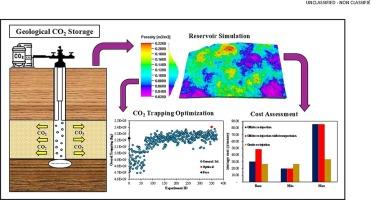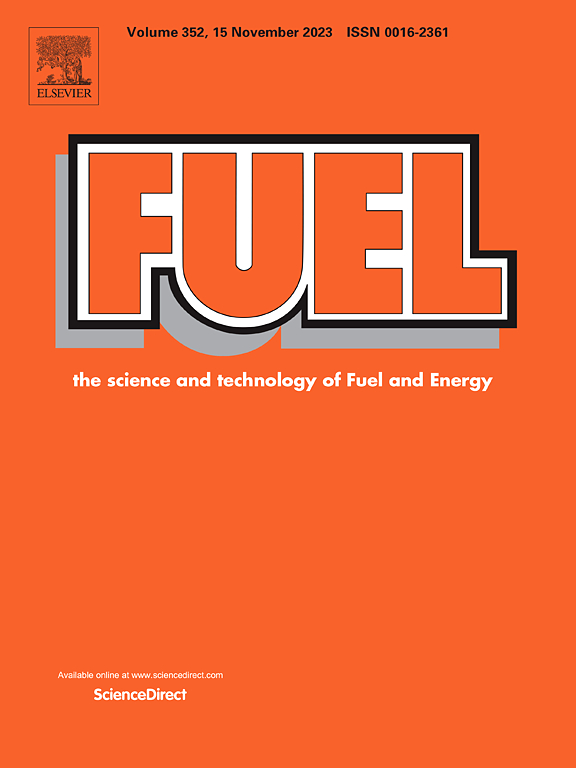安大略省西南部的二氧化碳地质封存可行性:成本评估和压力管理的作用
IF 7.5
1区 工程技术
Q2 ENERGY & FUELS
引用次数: 0
摘要
地质封存二氧化碳是一种很有前途的控制二氧化碳排放和减缓全球变暖的方法。然而,这种方法伴随着与储存地点的地质有关的重大不确定性。该研究采用了强大的优化技术来解决地质不确定性问题,并为安大略省西南部的一个油田提供了更准确的存储容量和相关注入成本估算。为了实现这一目标,基于现有岩石数据创建了500个地质实现,并对其进行了排序,以确定最可能的模型。稳健的优化过程通过涉及P10、P50和P90地质实现,目标是最大限度地捕获二氧化碳,包括溶解和残留捕获。通过稳健优化确定了潜在的储存面积,结果显示,每年100万吨二氧化碳注入的估计成本为每吨54.79美元,由于该区域的储存容量有限,这被认为是很高的。本研究介绍了一种提高储水容量的盐水提取方法。模拟结果表明,60平方公里的面积可容纳100万吨/年的二氧化碳注入,每吨约30美元用于场外再注入。然而,成本评估表明,场外盐水回注可能会使成本上升至每吨二氧化碳80美元。该研究对二氧化碳储存能力和成本影响提供了有价值的见解,为二氧化碳储存的未来研究和工业应用提供了基础。本文章由计算机程序翻译,如有差异,请以英文原文为准。

Geological CO2 storage feasibility in Southwestern Ontario: Cost assessment and the role of pressure management
Geological CO2 storage presents a promising method for controlling CO2 emissions and mitigating global warming. However, this approach is accompanied by significant uncertainties related to the geology of the storage site. This study employs robust optimization techniques to address geological uncertainties and provide more accurate estimates of storage capacity and associated injection costs for a site in Southwestern Ontario. To achieve this, 500 geological realizations based on available rock data were created and ranked to identify the most probable models. The robust optimization process targeted maximum overall CO2 trapping, including both dissolution and residual trapping, by involving P10, P50, and P90 geological realizations. The potential storage area was determined through robust optimization, revealing that the estimated cost for operating a 1 Mt/year CO2 injection is $54.79 per ton, which is considered high due to the limited storage capacity of the area. This research introduces a brine extraction approach to enhance storage capacity. Simulation results indicate that a 60 km2 area could accommodate 1 Mt/year CO2 injection at approximately $30 per ton for offsite re-injection. However, cost assessments suggest that offsite brine re-injection could escalate costs up to $80 per ton of CO2. This study provides valuable insights into CO2 storage capacity and cost implications, offering a basis for future research and industrial applications in CO2 storage.
求助全文
通过发布文献求助,成功后即可免费获取论文全文。
去求助
来源期刊

Fuel
工程技术-工程:化工
CiteScore
12.80
自引率
20.30%
发文量
3506
审稿时长
64 days
期刊介绍:
The exploration of energy sources remains a critical matter of study. For the past nine decades, fuel has consistently held the forefront in primary research efforts within the field of energy science. This area of investigation encompasses a wide range of subjects, with a particular emphasis on emerging concerns like environmental factors and pollution.
 求助内容:
求助内容: 应助结果提醒方式:
应助结果提醒方式:


